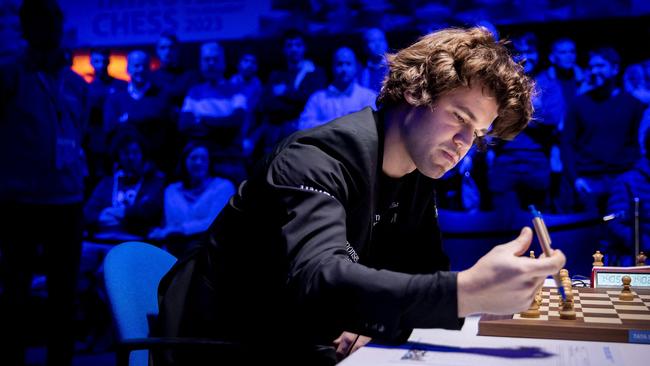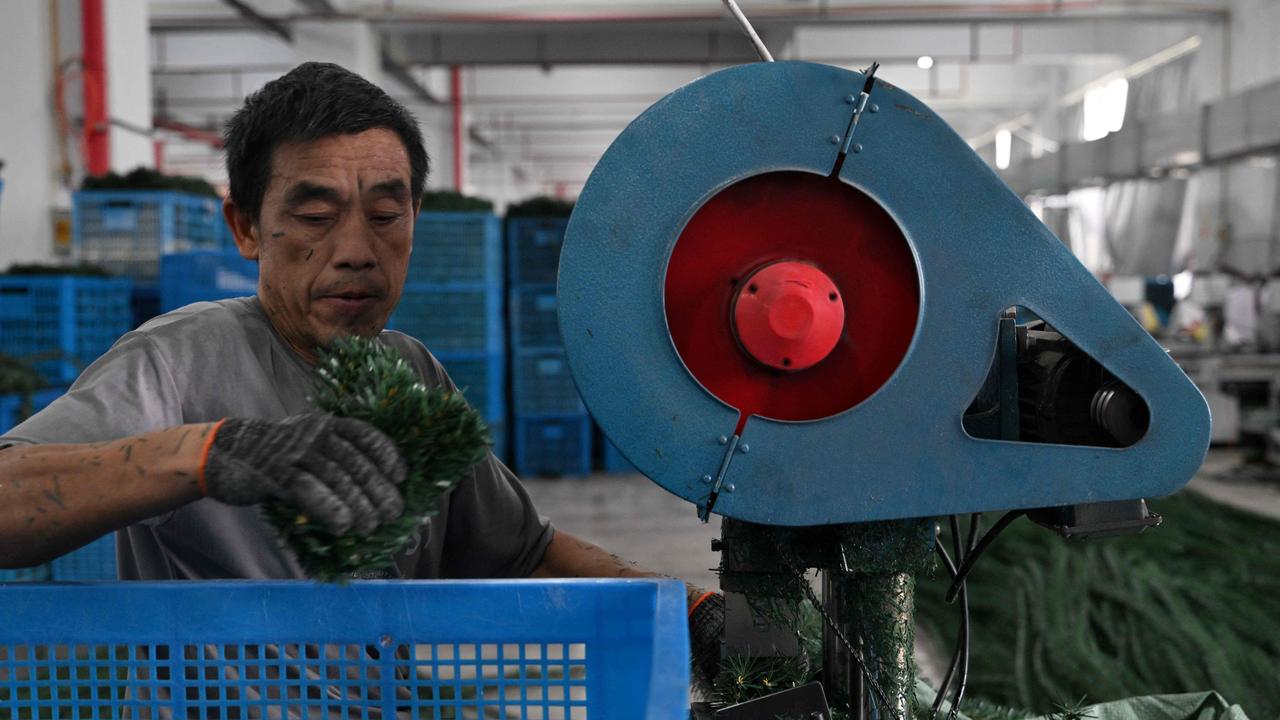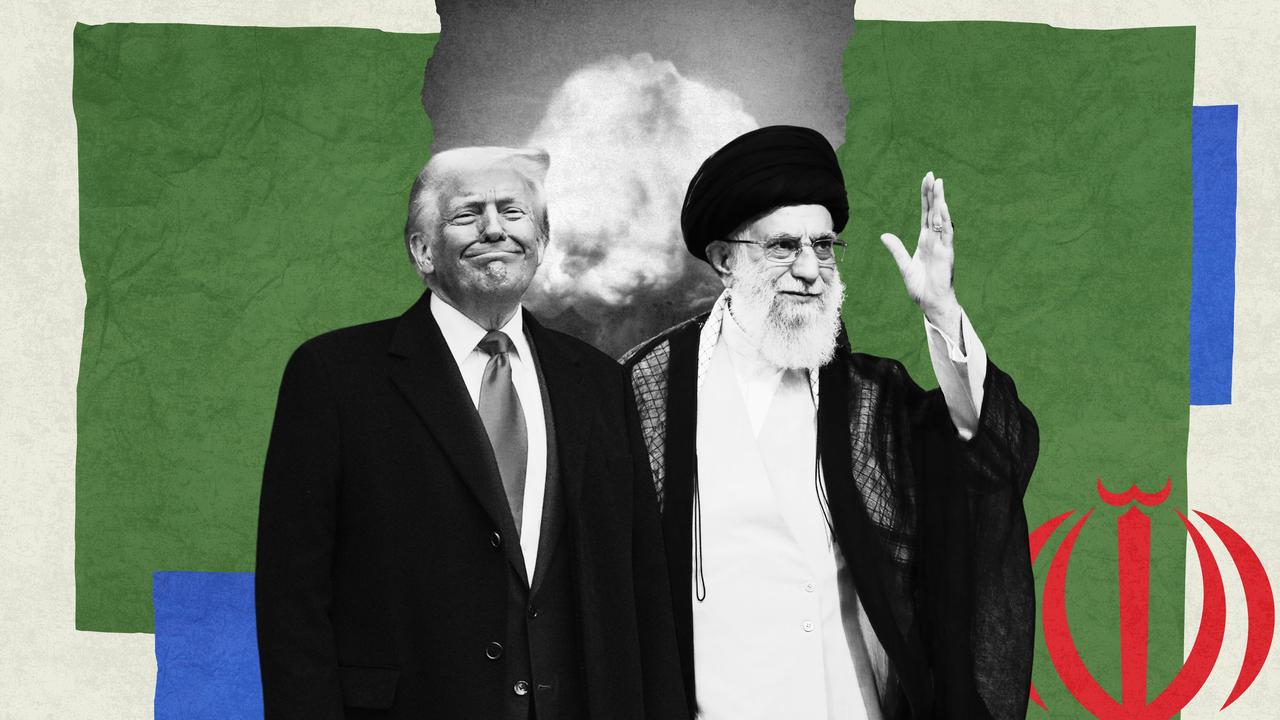Watch proves too much distraction for chess grandmaster Magnus Carlsen
It wasn’t just time that got the better of grandmaster Magnus Carlsen last week.

Norwegian grandmaster Magnus Carlsen sat down inside Qatar’s Lusail Sports Arena last Thursday for a chess game against an opponent he would normally demolish.
But the five-time world champion suddenly found himself unable to concentrate on the pieces in front of him because his mind was focused on something else entirely.
Carlsen had noticed his opponent was wearing a watch.
As his eyes flicked back and forth between the board and the wrist of the 23-year-old Kazakh grandmaster across the table, he couldn’t shake the feeling that has been gripping elite players for over a year: total paranoia about possible cheating in chess.
“I was completely crushed in my game today,” Carlsen posted on X, the platform formerly known as Twitter, after the defeat to Alisher Suleymenov. “This is not to accuse my opponent of anything, who played an amazing game and deserved to win, but honestly, as soon as I saw my opponent was wearing a watch early in the game, I lost my ability to concentrate.”
The loss to Suleymenov at the Qatar Masters marked one of the worst defeats Carlsen has suffered in a decade. But his reaction to losing to a relatively low-rated opponent – whose analog watch would normally be banned in competition by the game’s world governing body – highlighted a growing frustration inside the chess community. As long as organisers don’t take security more seriously, top players say, the spectre of cheating looms over every game.
It was just last year when Carlsen set the chess world on fire by withdrawing from a prestigious tournament after losing a match because he believed his opponent, the American grandmaster Hans Moke Niemann, was a cheater. The allegations led to outrageous speculation about potential cheating methods, a $US100m lawsuit and a broader reckoning over how to police the game. The situation grew so absurd that one top player, Russia’s Ian Nepomniachtchi, wryly suggested “playing naked in a locked room” to ensure nobody was carrying a hidden device.
These days, cheating is so easy because anyone with access to the internet has the capability to load technology capable of stomping the best chess players on the planet. It simply takes a few taps on a smartphone to pull up what’s known as a chess engine on a website or an app, and instantly discover the perfect move in every situation. No human stands a chance against the world’s best engines.
So it isn’t difficult to imagine how a wannabe cheater with an accomplice might attempt a chess heist. Over the years, mid-match trips to the bathroom have become so scrutinized that there has been more than one scandal dubbed Toiletgate. Other accused cheaters have allegedly received signals from someone in the audience.
“I just see organizers continuing to operate under the premise that people won’t cheat,” said Chess.com’s chief chess officer Danny Rensch, who questioned when top players will begin simply sitting out in-person tournaments that don’t have proper anti-cheating measures. “The ease of access to technology that would facilitate cheating would shock people.”
After Carlsen’s blow-up with Niemann last year, the tournament overhauled its security protocol to eliminate potential wrongdoing. The game’s broadcast was put on a time delay, so anyone watching remotely wouldn’t be able to send signals in real-time to a player via a hidden device. And players were checked for electronics with a high-end, silicon scanner – even a banana Niemann had brought for a snack went under the wand.
Such measures were seemingly absent from the Qatar Masters, Carlsen said. In addition to the watch that dominated Carlsen’s attention, he noted that there was no transmission delay while spectators were allowed to roam the playing hall with smartphones.
“I obviously take responsibility for my inability to deal with those thoughts properly,” Carlsen wrote on X, “but it’s also incredibly frustrating to see organizers still not taking anti-cheating seriously at all.”
The Qatar Chess Association did not respond to a request for comment. But by the start of Friday’s play, organisers had added a 15-minute delay to their tournament broadcast and formally banned watches after several more top players’ echoed Carlsen’s concerns.
“Absolutely agree with this take,” wrote French grandmaster Maxime Vachier-Lagrave. “Players need to unite to get anti-cheating measures in place at every tournament. To hinder cheaters, obviously, and to avoid people doubting every great performance, as I already saw a few bad tweets throwing shade at Alisher’s brilliancy today.”
There is nothing to suggest that Suleymenov cheated. But what’s now the most controversial wrist accessory in chess seemingly violated the most basic anti-cheating protocols. FIDE, the game’s international governing body, prohibits players from bringing any personal items such as wallets, smart glasses, pens or watches into the playing hall.
Carlsen’s timepiece tantrum comes only months after players raised eyebrows about apparent laxity around fair play measures at this summer’s Chess World Cup in Azerbaijan. Carlsen also isn’t the only former world champion to raise concerns about cheating recently either.
Last month, Russia’s Vladimir Kramnik dragged Niemann into another flare-up after losing to the American in a game online by insinuating he was cheating. Niemann has denied cheating except in a handful of online games when he was younger. Kramnik described Niemann’s play as “unusual” and then wrote that he would stop playing on Chess.com because there were too many cheaters on the website. (Chess.com, which is widely viewed as having the most advanced cheat detection in the industry, says it closes the accounts of 10 to 15 titled players a month for violating fair-play rules.)
Kramnik didn’t make the suggestion lightly. He also knows what it’s like to have the finger pointed at him, even when those accusations are dismissed. He was the one wrongly accused at the 2006 World Championship in the original Toiletgate scandal.
The Wall Street Journal



To join the conversation, please log in. Don't have an account? Register
Join the conversation, you are commenting as Logout